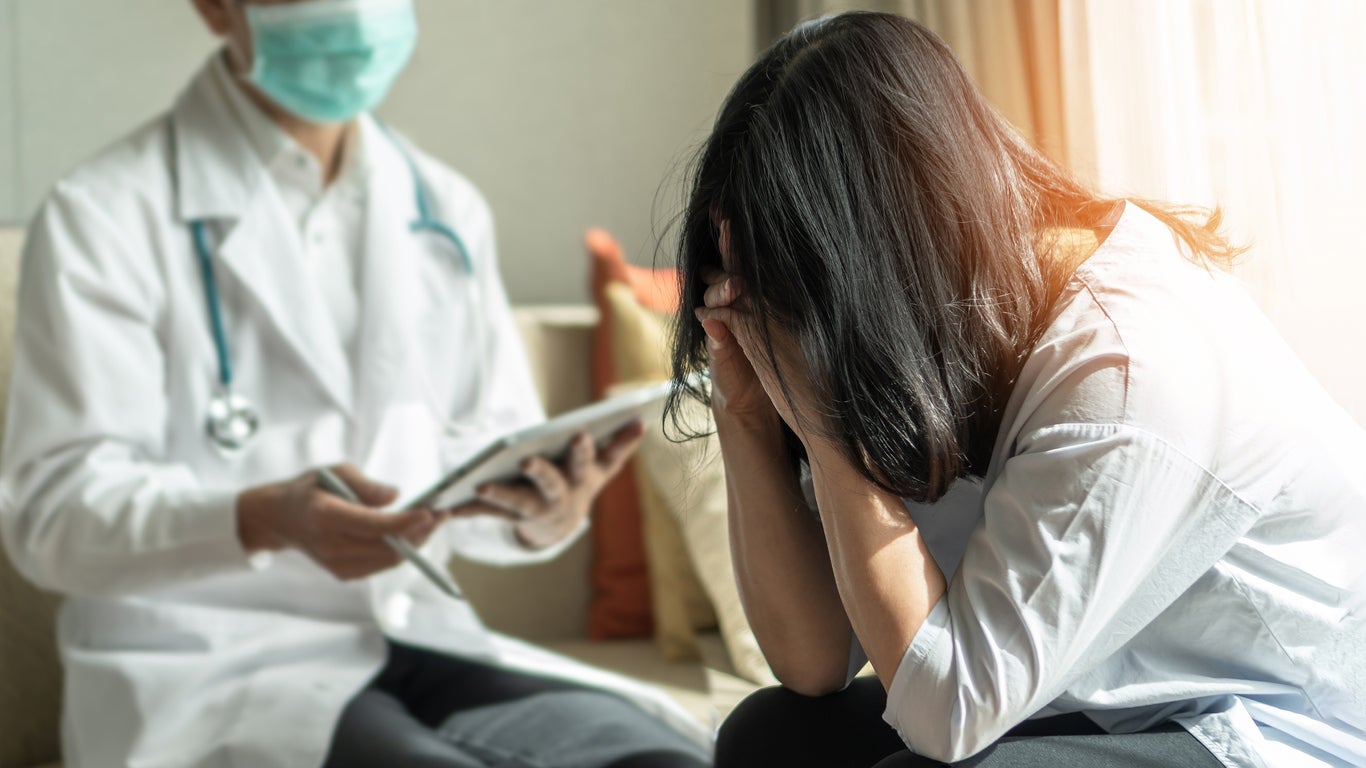New menopause drug to treat hot flushes given green light in UK
Women can be prescribed Veoza from January after facing decades with few treatment options

Your support helps us to tell the story
From reproductive rights to climate change to Big Tech, The Independent is on the ground when the story is developing. Whether it's investigating the financials of Elon Musk's pro-Trump PAC or producing our latest documentary, 'The A Word', which shines a light on the American women fighting for reproductive rights, we know how important it is to parse out the facts from the messaging.
At such a critical moment in US history, we need reporters on the ground. Your donation allows us to keep sending journalists to speak to both sides of the story.
The Independent is trusted by Americans across the entire political spectrum. And unlike many other quality news outlets, we choose not to lock Americans out of our reporting and analysis with paywalls. We believe quality journalism should be available to everyone, paid for by those who can afford it.
Your support makes all the difference.A new drug that treats hot flushes for menopausal women has been given the green light for use in the UK.
Veoza, also called fezolinetant, has been predicted to be “completely game-changing” for hundreds of thousands of women after they have faced decades with few safe and effective treatment options.
Around 70 per cent of women going through the menopause are affected by hot flushes, also known as vasomotor symptoms, which is when they feel suddenly and intensely hot, impacting their quality of life, exercise, sleep and productivity.
Previously, hormone replacement therapy (HRT) has been the most effective treatment – but some women with a history of breast or ovarian cancer, blood clots or untreated high blood pressure are among those for whom this is not suitable. Then, there are the women who experience unwanted side effects or who would simply prefer a non-hormonal option.
Now, Veoza will initially be available prescription-only and privately from 5 January, according to its maker Astellas.
Julian Beach, the interim executive director of healthcare quality and access at the Medicines and Healthcare Products Regulatory Agency (MHRA), told The Guardian on Sunday: “Hot flushes and night sweats caused by menopause are common, and can have a significant impact on a woman’s daily life.
“We are therefore pleased to have authorised Veoza (fezolinetant) for hot flushes and night sweats caused by menopause via our reliance procedure.
“No medicine would be approved unless it met our expected standards of safety, quality and effectiveness, and we continue to keep the safety of all medicines under close review.”
It comes after the non-hormonal drug won approval from the US regulator, the Food and Drug Administration, for use in America in May. Following the green light there, experts said the treatment could also transform the lives of hundreds of thousands of women in the UK who are not able to use HRT.
Prof Waljit Dhillo, an endocrinologist at Imperial College London who led a pioneering trial in 2017, said: “This is going to be a completely blockbuster drug. It’s like a switch. Within a day or two the flushes go away. It’s unbelievable how well these drugs work. It’s going to be completely game-changing for a lot of women.”
Veoza blocks a brain protein called neurokinin-3, which is involved in regulating body temperature in menopausal women.
Following three months of use, a large clinical trial published in March showed the drug decreased the frequency of hot flushes by 60 per cent in women with moderate or severe symptoms, whereas those who received a placebo saw a reduction of just 45 per cent.
Women reported the medication tempered the severity of the symptom, while also improving their quality of sleep.
Marci English, the head of biopharma development at Astellas, said: “Fezolinetant’s novel mechanism of action targets the root cause of moderate to severe VMS [vasomotor symptoms] associated with menopause. We are proud to have developed an innovative treatment option for a condition that has lacked scientific advancement for too long.”
Astellas has begun applying to the National Institute for Health and Care Excellence, with hopes the drug could soon be available on the NHS. It added that the cost of treatment has not yet been approved by the Department of Health and Social Care. There is also no dose recommendation for women over 65 years old as Veoza has not yet been studied in their age group.
Diane Danzebrink, a menopause campaigner, said: “Hot flushes and night sweats are common menopause symptoms which can be debilitating, affecting personal health and wellbeing, family lives and careers. It’s welcome news that doctors will have an alternative option to consider during a consultation, according to individual suitability. The decision is particularly important for those who’ve felt overlooked in the past in terms of treatment options, or those who prefer not to use HRT.”
Join our commenting forum
Join thought-provoking conversations, follow other Independent readers and see their replies
Comments